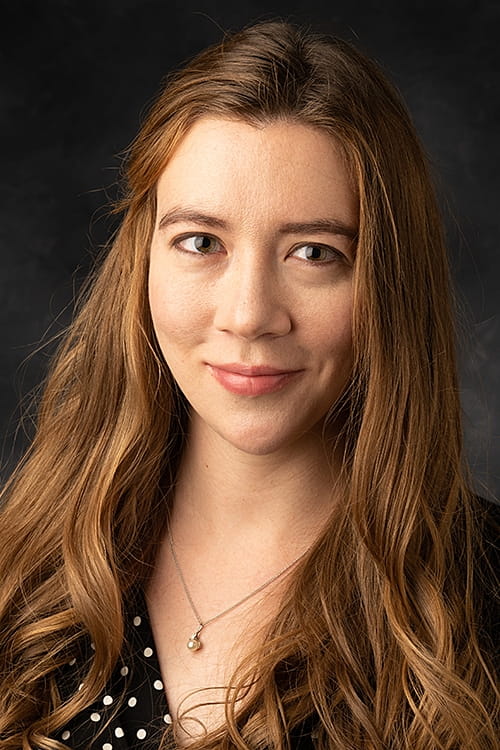
Brittany Todd, MD/PhD student
Reveals mechanisms of brain injury
“Brittany is a fantastic ambassador of the University of Iowa. She is a knowledgeable, inquisitive student that shows the highest level of scientific integrity and is deserving of recognition.” -Elizabeth Newell, assistant professor, pediatrics-critical care
Hometown: Coralville, Iowa
Faculty mentor/advisor: Elizabeth Newell, MD, assistant professor, pediatrics-critical care, Alexander Bassuk, MD, PhD, professor, pediatrics-general neurology, Carver College of Medicine
What is your degree program and expected graduate date? Medical Scientist Training Program (MD/PhD), May 2027
Please describe your research: Traumatic brain injury is the leading cause of death and disability in children and young adults. Despite the high burden of disease, there are no neuroprotective therapies available to health care providers. Following injury, the brain has an inflammatory response. While controlled activation of the immune system can aid in the healing process, chronic unregulated immune activation can contribute to additional injury and worse outcomes for patients. My research aims to better understand the pathways that contribute to chronic neurotoxic inflammation in order to develop new effect treatments for traumatic brain injuries.
In simple terms, why does this research matter? The same inflammatory pathways that are activated after traumatic brain injury are also implicated in several other neurodegenerative diseases, including Alzheimer’s disease, stroke, and Parkinson’s disease. Any knowledge gained from this research will be broadly applicable to many different patient populations and disease states.
How soon after starting at the University of Iowa were you able to participate in research? I began participating in research at the University of Iowa during my sophomore year as an undergraduate.
How has being involved in research made you more successful at the University of Iowa? My research involvement at Iowa provided crucial exposure to the world of academic medical research. Those early experiences made me want to pursue a career as a physician scientist and connected me with incredible mentors who serve as an inspiration for my future career and have helped me develop as a scientific thinker.
What are your career goals and/or plans after graduation? After graduation, I plan to become a physician scientist in pediatrics. I am particularly interested in studying the effects of acquired injury on the developing brain and hope to use my degrees to help children who suffer from neurologic disorders.
Banner location: not on display—
